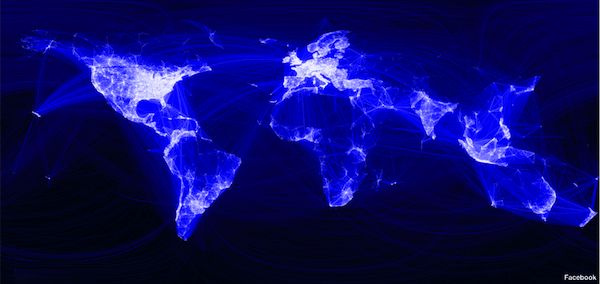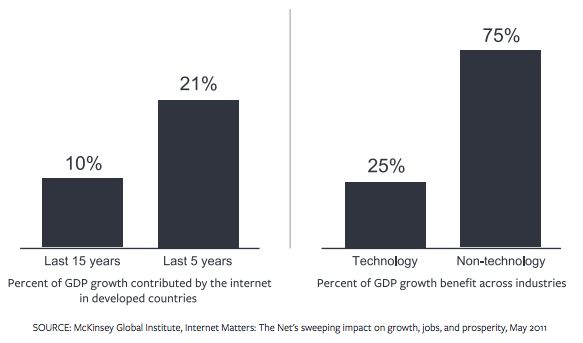Zuckerberg Asks, Is Internet Access a Human Right?


Today, the Internet isn't accessible for two-thirds of the world. Facebook's Mark Zuckerberg is asking us to "imagine a world where it connects us all," with the launch of a global partnership to increase Internet accessibility worldwide.
The partnership incorporates technology leaders, nonprofits, local communities, and tech companies such as Samsung, Nokia, Qualcomm and Ericsson, dedicated to providing worldwide connectivity.
Put eloquently in a recent New York Times article, "With Internet.org, [Zuckerberg] is laying out a philosophy that tries to pair humanitarian goals with the profit motive."
In an outline of his "philosophy," he defines connectivity as a human right, because it's "the foundation of the global knowledge economy."
Zuckerberg, as founder and CEO of Facebook, undoubtably has a lot to gain from the wide scale spread of Facebook. The more users on Facebook, the more ad revenue, data, and profits he makes -- not to mention the potential for even more influence and further solidification of his status as a leader in the tech industry.
Despite his obvious underlying motives, he does substantiate his claim by explaining the importance of Internet access. Before the Internet, our economy was resource-based, incentivizing those with resources to hoard, rather than share. We now live in a knowledge economy, he argues:
"A knowledge economy is different and encourages worldwide prosperity. It’s not zero sum. If you know something, that doesn’t stop me from knowing it too. In fact, the more things we all know, the better ideas, products and services we can all offer and the better all of our lives will be."
Building on the United Nation's previous declaration of Internet access as a human right, Zuckerberg argues that because the Internet accounts for substantial GDP growth in developed countries, creates job, and because of its economic advantages, it is a fundamental stepping stone of our future economies.
 "In a detailed analysis, McKinsey has shown that the internet now accounts for a larger percent
"In a detailed analysis, McKinsey has shown that the internet now accounts for a larger percent
of GDP in many developed countries than agriculture and energy."
Research by McKinsey confirms the impact the Internet has made on developed countries, with growth not only affecting the tech industry, but largely benefiting non-technology sectors of the economy.
The Internet now functions as a tool for political activism, empowering citizens of the 21st century to defend their other human rights.
"The recent wave of demonstrations in countries across the Middle East and North African region has shown the key role that the Internet can play in mobilizing the population to call for justice, equality, accountability and better respect for human rights," the U.N. reports in 2011, following the outburst of activism known as the Arab Spring.
Facebook is now the third most popular news source in the Middle East, further highlighting the role of social media and the Internet in replacing traditional forms of media. It mobilizes users to action, enables freedom of expression, and provides for the spread of valuable information at a speed which before the Internet, was unheard of.
Internet.org's effort to connect the world's 7 billion people focusing on three key challenges: (1) making access affordable, (2) using data more efficiently, and (3) helping businesses drive access. A rough outline can be viewed here.



